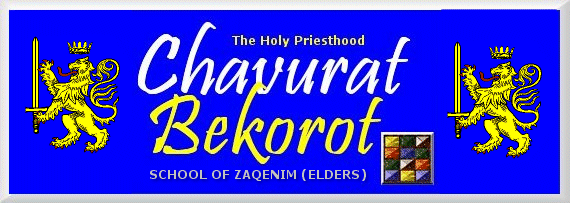RESOURCES
5-144000
A
B
C
D
E
F
G
H
I
J
K
L
M
N
O
P
Q
R
S
T
U
V
W
Y
Z
|
|


5
OLD TESTAMENT ESSAYS
 Does the Concept 'Moses the Lawgiver' Adequately Express Moses' True Rôle?
(10 May 1983)
Does the Concept 'Moses the Lawgiver' Adequately Express Moses' True Rôle?
(10 May 1983)
by Christopher C. Warren, M.A.(Oxon)

Moses is regarded by Hebrews and Gentiles alike as one of the greatest Law-givers who ever lived. The code which has become known as the Mosaic Law has had profound effect on all humanity and not just the Israelite nation. The Decalogue, or Ten Commandments, has become one of the standards of the Christian faith, and wherever Christianity has spread, the Decalogue has followed in its train. Moses, of course, gave more than the DEcalogue which is maintained by the Bible to be the direct revelation of Yahweh to man. The Law included also the petty and religious regulations necessary for the smooth running of the Israelite nation. Much of these were doubtless borrowed from neighbouring cultures - Egyptian, Midianite and Canaanite, the latter of which was strongly influenced by the Law Code of Mesopotamian King Hammurabi. Moses was familiar with all these cultures, especially the Egyptian and Midianite (he lived for 40 years amongst the latter people), as well as those of other nations like Ethiopia, and therefore we should not be surprised to find his thinking about law-giving to have been influenced by these cultures and peoples.
But Moses was far more than a law-giver. He was the greatest Old Testament prophet - only John the Baptist and Yah'shua (Jesus) Himself were claimed by New Testament writers to have outshone this venerable man of antiquity. Moses was commissioned by Yahweh in the wilderness to lead the enslaved Israelite nation out of Egypt and to rekindle in them the flame of true religion as had once burned in patriarchal times. The Spirit of Yahweh was with him as he performed miracle after miracle with the aid of his brother Aaron until the Pharaoh was obliged to set Yahweh's people free. Without Moses there would have been no Egyptian Exodus, no pillar of smoke by day and no pillar of fire by night. There would have been no miraculous provisions of food and water in the desert, and no one to plead on their behalf. No one else was equipped for the job, not even Aaron, whom as we know was party to th setting up of the Golden Calf in the Camp of Israel. Thus Moses' rôle as Prophet was as important as his rôle as Law-Giver.
Moses was also Yahweh's warrior, which he proved in encounters with Amelekites and Amorites. Moses was a Law-giver it is true, but he did not always make himself equal to his task; it took a wise father-in-law, Jethro, to straighten out administrative proceedures at a time when Moses rather foolishly tried to handle the administration of justice single-handed. Jethro had been a tribal leader and priest for a long time in Midian of (some claim) a Yahwist faith - his experience helped Moses rethink his strategy of government by advising Moses to delegate authority to others; elders were set up over small groups to judge trivial cases, leaving Moses free to deal with the more complicated ones and to be about other business. He was, after all, an old man by this time.
So, yes, Moses was "the great Law-Giver" but this must be seen within the context of his prophetic office and his cultural background. If he should be noted for anything it should be for his faith and humility - only once did he fail in these in the incident at Meribah by Kadesh-barnea when he failed to give Yahweh credit for a miracle. Thus "Moses the great Law-Giver" does not express his rôle adequately.



This page was created on 2 August 2009
Updated on 2 August 2009
Copyright © 1987-2009 NCCG - All Rights Reserved

|
|


